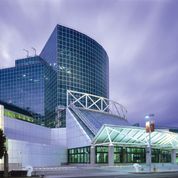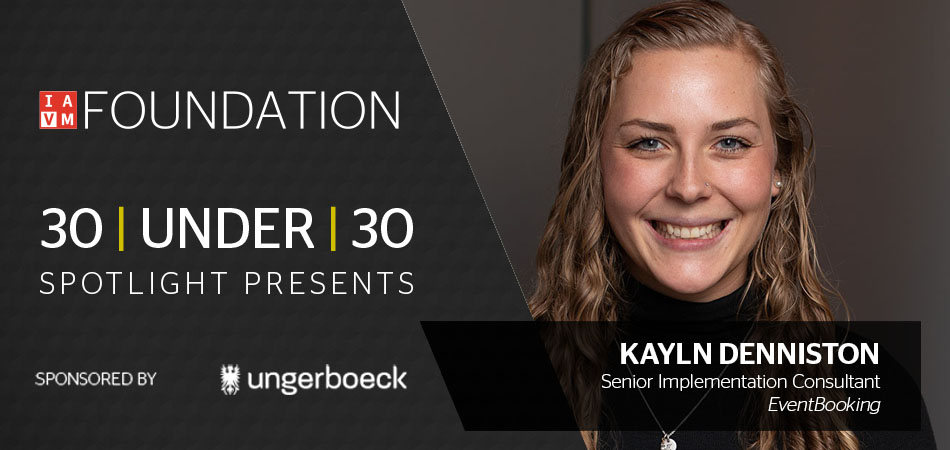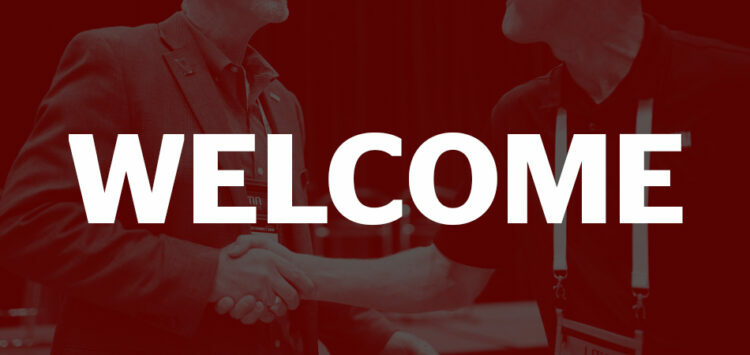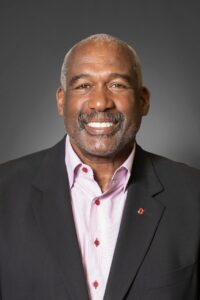Ticketmaster Global Chairman Jared Smith Steps Down After 17 Years
From Ticketing Business News
Jared Smith is stepping down as global chairman of Ticketmaster at the end of the year after more than 17 years with the ticketing giant.
In August, Smith was promoted to chairman of the combined North America and International teams as it looks to become a “truly global” self-service ticketing platform.
According to the announcement published by online news website Sportico, Smith and the chief executive of Live Nation Michael Rapino have reportedly had ongoing discussions over the past few years regarding a succession plan.
Smith said that the COVID-19 pandemic provided the opportunity to make the move.
He said in an interview, Sportico reports: “The company deserves to have the person who’s going to be here long-term  making the hard decisions right now of what it should look like.”
making the hard decisions right now of what it should look like.”
Smith will stay on through the end of the year to help with the transition.
Smith began his career at Ticketmaster in 2003 in an entry-level sales job in Birmingham, Alabama, and seven years later he was named chief operating officer following the merger with Live Nation in 2010. Three years later he was named president of its North America operation.
He said: “I owe my entire career to sports and entertainment. I love the business, the people, the dynamic relationship between the consumer and the product.
“As I evaluate opportunities, whether it’s within or outside the live event industry, the most important thing to me is finding an opportunity with great growth potential that leverages my experience of building innovative products, high performing teams and operating at real scale.”
Ticketmaster and its parent company have been hit hard by the COVID-19 pandemic, which shut down live events almost overnight in March. The majority of Live Nation’s shows were postponed or cancelled in 2020, with the company claiming that 86 per cent of fans have opted to keep tickets for rescheduled shows, as opposed to seeking refunds.
However, Live Nation’s 2020 financial results for the three months to end of June showed that its global ticketing operation posted negative revenue in the quarter, due to customer refunds.
Live Nation reported a loss of $567.5m for Q2 of 2020 in its quarterly earnings report. The firm’s revenue was $74.1m, down 98 per cent from the same period in 2019 when it reached revenue of $3.15bn.
Despite aggressive cost-cutting measures, the live entertainment giant furloughed and laid off hundreds of its North American workforce as a result of the pandemic in April. This was followed by a series of cuts in May that affected 2,100 of its 10,500 employees across multiple divisions at the company to reduce costs by $600m as live events remained dormant.
In September, it instigated a further round of furloughs across its US venues and Ticketmaster North America divisions. It is estimated that hundreds of employees have been affected by the cost-reduction measures brought on by the continued strain of COVID-19, although the exact number of cuts are unclear.
Environmental Stewardship Earns Los Angeles Convention Center LEED Gold Recertification Once Again
By Nancy Walker
The Los Angeles Convention Center (LACC), owned by the City of Los Angeles and managed by ASM Global, announced that the facility has been awarded LEED certification at the Gold level for Existing Buildings Operations & Maintenance (LEED-EB: O&M) for the third time. LEED (Leadership in Energy and Environmental Design), developed by the U.S. Green Building Council (USGBC), is the most widely used green building rating system in the world and an international symbol of excellence. Through design, construction and operations practices that improve environmental and human health, LEED-certified buildings are helping to make the world more sustainable.
The LACC first achieved Silver certification in 2008 and was certified at the Gold level in 2010 and again in 2015. LACC  achieved LEED Gold re-certification in recognition of implementing practical and measurable strategies and solutions in areas including water savings, energy efficiency/management, materials selection and indoor environmental quality. Certified under LEED V4.1 – adapting ARC Skoru platform, the new LEED guidelines ensure team effort, healthy building practices, performance oriented sustainable programs, and efforts toward zero waste.
achieved LEED Gold re-certification in recognition of implementing practical and measurable strategies and solutions in areas including water savings, energy efficiency/management, materials selection and indoor environmental quality. Certified under LEED V4.1 – adapting ARC Skoru platform, the new LEED guidelines ensure team effort, healthy building practices, performance oriented sustainable programs, and efforts toward zero waste.
“Achieving LEED certification is more than just implementing sustainable practices. It represents a commitment to making the world a better place and influencing others to do better,” said Mahesh Ramanujam, president and CEO, USGBC. “Given the extraordinary importance of climate protection and the central role buildings play in that effort, the Los Angeles Convention Center is creating a path forward through their LEED certification.”
“Congratulations to the Los Angeles Convention Center for continuing to prioritize the environmental practices that have once again earned the LEED Gold re-certification. The values and goals inherent in the LEED program match with goals set forth by the City of Los Angeles and we applaud the LACC’s team for weaving these components into the fabric of their operation,” said Doane Liu, Executive Director of the Los Angeles Department of Convention & Tourism Development.
“Environmental sustainability is embedded in the Los Angeles Convention Center’s culture and is considered with every decision in our day-to-day operation,” commented Ellen Schwartz, General Manager of the Los Angeles Convention Center. “The venue is nationally recognized as a champion of environmental stewardship and social responsibility. We remain steadfast in our efforts to reduce the venue’s environmental footprint by continually seeking new sustainable practices and products.”
Nancy Walker is Vice President, Sales & Marketing at the Los Angeles Convention Center.
30|UNDER|30 Spotlight: Kayln Denniston

Senior Implementation Consultant at EventBooking
Kayln Denniston is the Senior Implementation Consultant at EventBooking, a software company that provides venue management solutions to over 1,000 venues around the world. Starting the week after she graduated from the University of Tennessee, Kayln has now served venue professionals at EventBooking for over 5 years with her extensive experience in project management and knowledge of best practice workflows to meet the needs of venue teams of all sizes. In addition to her IAVM membership, Kayln is a proud 2018 graduate of the Oglebay Venue Management School, where she served as Class Rep for her second year, and also serves on the IAVM Allied Committee. She is active within the IAVM community and strives to strengthen the relationship between Allied and Professional members.
“I was absolutely over the moon when I received the news that I was selected for 30|U|30. After several years of trying I felt a wave of relief to have finally achieved one of my biggest goals. It is incredibly rewarding to be recognized as an Allied member for my contributions to IAVM and I look forward to many more years of serving and shaping this industry.”
Join your Foundation in congratulating Kayln on being honored as one of the 30|UNDER|30 Class of 2020 and don’t forget to come back each Thursday as we spotlight another honoree!
A Warm Welcome To Our Newest Members

Please welcome our newest members who joined IAVM in September 2020. Thank you for being a part of the association! Also, let us get to know you better by participating in the I Am Venue Management series. Please visit http://www.iavm.org/i-am-venue-management-share-your-story to share your story and photo.
Brett Aiken, Phoenix Convention Center & Venues, Phoenix, AZ
Lisa Anderson, Event Services – Utah State University, Logan, UT
Amber Anderson, Event Services – Utah State University, Logan, UT
Linda Baynham, New Orleans Ernest N. Morial Convention Center, New Orleans, LA
Kristin Bergstrom, Mesa Convention Center, Mesa, AZ
Luke Blackburn, Indiana University, Bloomington, IN
Sarah Bordges, Western Kentucky University, Montgomery, AL
Brandin Bowman, Mt. San Antonio College, Walnut, CA
Mark Casalez, Virginia Beach Convention Center, Virginia Beach, VA
Jason Causey, Georgia International Convention Center/GICC, College Park, GA
Kelsey Cerrone, Kroenke Sports & Entertainment, Denver, CO
Mara Christensen, Event Services – Utah State University, Logan, UT
Shaun Cole, Mt. San Antonio College, Walnut, CA
David Cononetz, Washington State Convention Center, Seattle, WA
Lauren Cox, Georgia International Convention Center/GICC, College Park, GA
Dave Curry, Climate Pledge Arena, Seattle, WA
Duane Curry, Georgia International Convention Center/GICC, College Park, GA
Dylan Duckworth, Western Kentucky University, Antioch, IL
Tammy Duhaime, Petainer Manufacturing Inc., Miami, FL
Vanessa Febo, Venues Canberra, Dickson, ACT, Australia
David Fong, Sydney Olympic Park Authority, Sydney Olympic Park, NSW, Australia
Derek Forare, Washington State Convention Center, Seattle, WA
Randy Foster, Climate Pledge Arena, Seattle, WA
Deboney Gainer, Georgia International Convention Center/GICC, College Park, GA
Yvette Garcia, Mt. San Antonio College, Walnut, CA
Kristin Gentry, Kroenke Sports & Entertainment, Denver, CO
Robbie Gerber, Event Services – Utah State University, Logan, UT
Jermaine Goodwin, Berry Center, Houston, TX
Andrew Hawkins, Venues Canberra, Jamison, ACT, Australia
Ken Hays, New Orleans Ernest N. Morial Convention Center, New Orleans, LA
Chris Heinbaugh, AT&T Performing Arts Center, Dallas, TX
Ross Heller, CustomNEWS, Inc., Bethesda, MD
Barry Higgens, Georgia International Convention Center/GICC, College Park, GA
Crystal Hill-Cox, Georgia International Convention Center/GICC, College Park, GA
Christiane Horwitz, Kroenke Sports & Entertainment, Denver, CO
Jared Houtman, Western Kentucky University, Hendersonville, TN
Eric Jaeger, Climate Pledge Arena, Seattle, WA
Selina Kirwan, Kroenke Sports & Entertainment, Denver, CO
Stuart Lyon, Auckland Live, Auckland,
Chris Mason, MobileDOCK, Melbourne, VIC, Australia
Hugh McCurley, First 5 Minutes, Fortitude Valley, QLD, Australia
Austin McKenna, Kroenke Sports & Entertainment, Denver, CO
Scott Menefee, Climate Pledge Arena, Seattle, WA
Todd Molesky, Stages, Houston, TX
Joel Nash, Aramark Sports and Entertainment, Houston, TX
Lakisha Overton, Georgia International Convention Center/GICC, College Park, GA
Lucy Parzer, Kroenke Sports & Entertainment, Denver, CO
Zack Peggins, Climate Pledge Arena, Seattle, WA
Katie Ragan, Wisconsin Center District, Milwaukee, WI
Cristian Raudales, 24/7 Software, Boca Raton, FL
Gabrielle Rocker, Georgia International Convention Center/GICC, College Park, GA
Minerva Ruiz, Climate Pledge Arena, Seattle, WA
Denise Russell, Climate Pledge Arena, Seattle, WA
Jessica Sloate, Climate Pledge Arena, Seattle, WA
Matt Snyder, Churchill Downs Racetrack, Louisville, KY
Sam Steel, First 5 Minutes, Ultimo, NSW, Australia
Loni Syltebo, Washington State Convention Center, Seattle, WA
Seth Tarver, Event Services – Utah State University, Logan, UT
Earl Taylor, Washington State Convention Center, Seattle, WA
Ann Taylor, St. Charles Convention Center, Saint Charles, MO
Hewan Teshome, Climate Pledge Arena, Seattle, WA
Logan Trimmer, Western Kentucky University, White House, TN
Michael Viele, Midland Center for the Arts, Midland, MI
Cody Warren, Kroenke Sports & Entertainment, Denver, CO
Ezra Warren, St. Charles Convention Center, Saint Charles, MO
Jason Welchert, Mesa Convention Center, Mesa, AZ
Daniel Wickens, St. Charles Convention Center, Saint Charles, MO
Steven Wills, St. Charles Convention Center, Saint Charles, MO
Debbie Woods, St. Charles Convention Center, Saint Charles, MO
Ivan Zrilic, Callington, Ermington, NSW, Australia
The Ohio State University Athletic Director Gene Smith Prepares to Lead as VC Arenas Keynote Speaker
By R.V. Baugus
Gene Smith is in his 15th year as director of athletics at The Ohio State University. He is widely recognized among the leaders of his profession and has been named “one of the most powerful people in collegiate sport.”
Attendees at this year’s virtual VenueConnect will be able to hear Smith as he headlines as the Arenas Keynote Speaker.  Smith leads athletics at an institution and in a Big Ten Conference which will be starting its football season soon and thus able to have a say in the final College Football Playoffs, as well as having one of the leading contenders for the Heisman Trophy in quarterback Justin Fields.
Smith leads athletics at an institution and in a Big Ten Conference which will be starting its football season soon and thus able to have a say in the final College Football Playoffs, as well as having one of the leading contenders for the Heisman Trophy in quarterback Justin Fields.
Smith’s athletic department sponsors 36 fully-funded varsity sports with more than 1,000 student-athletes competing for Big Ten Conference and NCAA championships.
Smith has additional oversight responsibility for the Business Advancement division of Ohio State which includes: Schottenstein Center, Nationwide Arena, Blackwell Hotel, Drake Union, Fawcett Center, and Trademark & Licensing.
While gearing up for football and the myriad responsibilities on campus, Smith took some time to visit with us on a number of topics in advance of his keynote presentation.
May I ask the obvious at the outset about how important it is to have a football schedule starting up for the conference?
Its critical. First and foremost it’s about our student-athletes. They have worked hard for the opportunity to play. They wanted a chance to play and we have created a safe process to allow them to play. For our community, all of Buckeye Nation, and the 11 states and 14 schools in the conference, this is a positive social activity for all of the students, alumni, and fans to support these programs.
How have your fans been assured that the conference-member stadiums are providing the best in safety and sanitization for them?
Some of the states in our conference have restrictions that make it difficult to host fans in their stadiums, so we agreed to be consistent across the conference and not host fans, even though some schools could safely. Only families of players, coaches, and support staff will be in attendance. We are adhering to all the protocols of distancing, masks, sanitation, and hand washing accessibility to ensure our fans feel safe and protected while they are in our stadium.
As it relates to Arenas in which you are speaking, how are things progressing for basketball at the Big Ten venues as they prepare for their season?
The conference is currently working on schedules that we hope to announce soon for our teams to compete. We will have 20 Big Ten games and teams will be allowed to play a total of 27 games total – 20 conference and 7 non-conference games starting 11/25. Consistent with the state and county regulations we are still determining whether or not we can have fans at our venues. We are comfortable at The Ohio State University that our facilities could safely host fans, be it the Schottenstein Center or Nationwide Arena. Our mechanical systems allow our facilities to create the positive air flow needed to create a safe environment. We will still follow all protocols of masks, distancing, reduced capacity, sanitization, and hand washing, etc.
Shifting gears now to the IAVM VenueConnect, what are some topics you plan to speak on for our venue members to hear?
Leading through the adversity that we are experiencing with the pandemic and the social issues we have been dealing with in our society.
You obviously have venue members on your campus, many of which are long-time IAVM members such Xen Riggs, Mike Gatto, and Colin Thompson, among others. Talk some about the critical role these individuals play as venues begin to reopen around the country.
We are blessed to have people like Xen Riggs and Mike Gatto and Colin Thompson and others who have many years of experience. Their understanding of how to run venues and their understanding of how to host entertainers or other groups and fans in our venues is a significant asset for us. Not everyone is fortunate enough to have the collective talent and expertise that we enjoy because of the people in those positions. They are leaders for us on campus, in Columbus, the state of Ohio and nationally. They have a strong voice in how to safely reopen our facilities and allow our events to return.
What are some takeaways that VenueConnect attendees can expect from your presentation and as they return to their own venues?
Most importantly, understanding people matter more than the facilities themselves. It is critical that in all spaces, through good times and challenging times, that we always keep at the forefront of every decision – people are the heart and soul of all that matters. Without our people we have nothing. Leading with integrity, collaboration, transparency, and being humanistic during these challenging times will help us get through this. And we will come out of this stronger and better for the experiences we have all endured and the challenges we have risen to overcome during this time.
In your mind’s eye, what will the venues of tomorrow look like as fans attend in what will certainly look nothing like what they have been accustomed to?
One of the things we have done prior to the pandemic is to continue to enhance technology. Technology continues to emerge and our ability to respond and learn about whatever platforms or devices that emerge is critical. That is one of the benefits we have in our people; they are trying to always learn about those things and how we can better serve our fans and guests. At some point we will move past this. All of the measures we are putting in place now to improve safety and sanitation and the overall experience will help us create even better experiences for our guests in the future.
Do you want to receive a Front Row News weekly digest?
Categories
- Allied (861)
- Architecture (147)
- Arenas (747)
- Career (897)
- Convention Centers (895)
- Education (623)
- Events (1,544)
- Food & Beverage (193)
- Foundation (113)
- Guest Experience (1,496)
- Industry News (2,270)
- Leadership (1,888)
- Marketing (150)
- Membership (2,000)
- Music (213)
- Performing Arts Centers (454)
- Professional Development (409)
- Research (127)
- Safety & Security (442)
- Sports (763)
- Stadiums (608)
- Student (159)
- Technology (516)
- Ticketing (92)
- Touring (82)
- Trends (364)
- Uncategorized (743)
- Universities (218)
- Video (25)
- Young Professional (198)
Twitter Feed
- Twitter feed loading
Recent Posts
- Venuworks and ATG Entertainment Selected to Manage Fresno Convention and Entertainment Center
- Seattle Convention Center Announces Strategic Leadership Appointment and Growth Initiatives for 2026
- Peggy Daidakis Humbly Made Convention Center History
- Welcome to Our Newest Members
- New Member Benefit! IAVM Partners with Advantage Training to Elevate Staff Readiness and Guest Experience
Categories
- Allied
- Architecture
- Arenas
- Career
- Convention Centers
- Education
- Events
- Food & Beverage
- Foundation
- Guest Experience
- Industry News
- Leadership
- Marketing
- Membership
- Music
- Performing Arts Centers
- Professional Development
- Research
- Safety & Security
- Sports
- Stadiums
- Student
- Technology
- Ticketing
- Touring
- Trends
- Uncategorized
- Universities
- Video
- Young Professional
Archives
- December 2025
- November 2025
- October 2025
- September 2025
- August 2025
- July 2025
- June 2025
- May 2025
- April 2025
- March 2025
- February 2025
- January 2025
- December 2024
- November 2024
- October 2024
- September 2024
- August 2024
- July 2024
- June 2024
- May 2024
- April 2024
- March 2024
- February 2024
- January 2024
- December 2023
- November 2023
- October 2023
- September 2023
- August 2023
- July 2023
- June 2023
- May 2023
- April 2023
- March 2023
- February 2023
- January 2023
- December 2022
- November 2022
- October 2022
- September 2022
- August 2022
- July 2022
- June 2022
- May 2022
- April 2022
- March 2022
- February 2022
- January 2022
- December 2021
- November 2021
- October 2021
- September 2021
- August 2021
- July 2021
- June 2021
- May 2021
- April 2021
- March 2021
- February 2021
- January 2021
- December 2020
- November 2020
- October 2020
- September 2020
- August 2020
- July 2020
- June 2020
- May 2020
- April 2020
- March 2020
- February 2020
- January 2020
- December 2019
- November 2019
- October 2019
- September 2019
- August 2019
- July 2019
- June 2019
- May 2019
- April 2019
- March 2019
- February 2019
- January 2019
- December 2018
- November 2018
- October 2018
- September 2018
- August 2018
- July 2018
- June 2018
- May 2018
- April 2018
- March 2018
- February 2018
- January 2018
- December 2017
- November 2017
- October 2017
- September 2017
- August 2017
- July 2017
- June 2017
- May 2017
- April 2017
- March 2017
- February 2017
- January 2017
- December 2016
- November 2016
- October 2016
- September 2016
- August 2016
- July 2016
- June 2016
- May 2016
- April 2016
- March 2016
- February 2016
- January 2016
- December 2015
- November 2015
- October 2015
- September 2015
- August 2015
- July 2015
- June 2015
- May 2015
- April 2015
- March 2015
- February 2015
- January 2015
- December 2014
- November 2014
- October 2014
- September 2014
- August 2014
- July 2014
- June 2014
- May 2014
- April 2014
- March 2014
- February 2014
- January 2014
- December 2013
- November 2013
- October 2013
- September 2013
- August 2013
- July 2013
- June 2013
- May 2013
- April 2013
- March 2013
- February 2013
- January 2013
- May 2012
- March 2012
- December 2011
- November 2011
- October 2011
Recent Comments
- Frank Bradshaw, Ph.D., CVE on John Meyer, CVE, a Tireless Advocate of Certification for Venue Professionals, Has Died
- Neil Sulkes on Hilary Hartung, Friend to Many in Venue Marketing, Has Left Us
- Jason Parker, CVE on The Devastation of Hurricane Helene and How We Can Support One Another
- Larry Perkins on Touhey Testifies Against Speculative Ticketing Before Congressional Subcommittee
- Peter Secord on Major Players for Planned Elkhart Amphitheater Were in the Mix at VenueConnect
